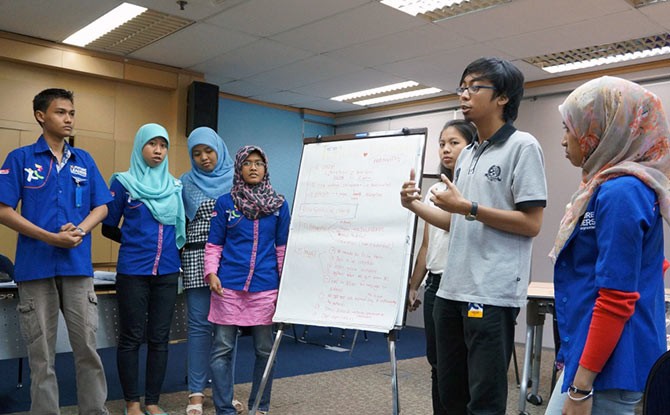
Encouraging Trends in Youth Empowerment
Last week Chris Henderson, a consultant from our education partner Cognition Education, wrote an interesting blog post summarizing a strategy document from the United Nations Development Program (UNDP) entitled, “UNDP Youth Strategy 2014-2017: Empowered Youth, Sustainable Futures.â€Â While Chris summarizes the overall focus of the document, a few themes within the report stood out as particularly interesting as they represent some encouraging trends in the global thinking around the empowerment of youth and their role in society.
Youth leading in the present
There are countless companies, organizations and political groups that support the idea of today’s youth impacting tomorrow’s future. While this is (by necessity) true and something we can all support, the idea of relegating the impact of youth to the future is somewhat wasteful considering their many strengths. The youth of today are energetic, passionate and increasingly, through technology and social media, well informed about present issues impacting our world today.
Inherent in the UNDP’s strategy report is the recognition that not only does empowering today’s youth create sustainable results tomorrow, but also by empowering today’s youth we are unleashing today’s young leaders… today. As summarized on page 23 of the report, “young people are not simply recipients of development efforts,†but rather, “[they] have the potential to respond positively to life challenges and be positive agents of transformational change, as collaborators and as leaders.â€Â Author J.K. Rowling expresses this rather succinctly when she writes, “Age is foolish and forgetful when it underestimates youth.â€
Young entrepreneurs being actively cultivated
As Chris points out in his summary, the current global youth population is the largest the world has ever seen. When coupled with the trend of increased migration to urban centers, we are seeing staggering job shortages in nations around the globe.  As a result, the UNDP says, “young people in developing countries turn to self-employment because there are simply no jobs elsewhere.â€Â However, the entrepreneurial pathway doesn’t have to be the backdoor when no other job paths are available. An alternative is for nations and organizations to actively empower young entrepreneurs as a primary means of economic development. As stated later in the report, “Young entrepreneurs not only create their own work and possibly employ others, but also gain experience, marketable skills, responsibility, self-esteem and linkages to local communities while contributing to overall social cohesion.â€
An example of this type of effort is Accenture’s recent report on digital entrepreneurship in G20 nations. According to Accenture, governments and organizations can become “bridge makers†that lift the barriers holding young entrepreneurs back through policy reform and improving the accessibility of financial resources and local markets.
Formal education is only part of the path
A final trend worth mentioning (although certainly not new to many) is the view that formal education by itself is rarely sufficient to prepare young people for their career path in the labor market. Specifically, from UNDP, “formal education curricula are often overly theoretical, leaving students feeling ill-prepared and lacking the necessary practical skills for the labour force.â€Â This is not to downgrade the importance of formal education, but rather to point out that non-formal education programs, internships and even volunteerism are essential components of the career pathway for young people today. Young people, both employees and entrepreneurs, are entering a workforce that demands highly specific technical skills, as well as soft skills such as leadership and the ability to effectively communicate. This means we must define “education†more broadly to include avenues beyond those governed by formal institutions.
At XL Future Leaders we are proud to be a frontrunner in creating innovative ways to empower young people and to value their role in the world today. We are constantly amazed at what the young people in our program are capable of accomplishing. Whether it is starting a job creating entrepreneurial enterprise, or building an app that saves lives through early warning of natural disasters, the young leaders in our program are not just waiting for their chance to lead in the future, but they are engaging in issues shape our world in the present.
